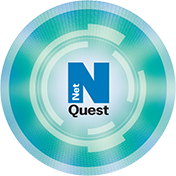Many businesses turn to cloud-based solutions for their data storage and processing needs, but it's also important to be aware of the potential risks of such solutions. Understanding and addressing the most common cloud security threats is key to keeping an organization's data and systems safe from cyberattacks.
Here are five of the most common cloud security threats businesses should be aware of:
Misconfigured cloud services
Many businesses assume that they no longer have to worry about security when they move to the cloud, but this isn’t always the case. While cloud providers handle the basics of securing their environment, organizations must take responsibility for configuring cloud services to meet their own security requirements.
For example, many cloud services offer encryption and two-factor authentication (2FA), but these features must be enabled by the user for these to provide the highest level of security. If a business fails to configure these settings correctly, its data could be exposed to cybercriminals.
Insufficient identity and access management (IAM) controls
The accessibility of cloud services and the ease of adding or removing users make user authentication and access control critical aspects of cloud security. If user permissions are not properly managed, unauthorized individuals may be able to get their hands on sensitive data or applications.
To mitigate this risk, organizations should implement strong IAM policies and procedures, such as 2FA and access control lists. These measures restrict user access to only those who need it while also enabling administrators to keep track of who has access to what data, making it easier to trace and investigate any security incidents.
Related reading: The crucial role of identity and access management in cybersecurity
Data loss and leakage
Data loss and data leakage are two of the biggest cloud security threats that businesses face today. Data loss can occur due to hardware and software failures, accidental or malicious deletion of data, or even natural disasters. Data leakage, on the other hand, is when data is accidentally or intentionally shared with unauthorized parties. This can happen if the company doesn't have proper security and data disclosure policies in place.
To ensure that sensitive data is protected, businesses need to implement strong encryption protocols and access control measures. Additionally, data should be regularly backed up, preferably with copies stored in a secure off-site location, to minimize the risk of data loss.
API vulnerabilities
APIs, or application programming interfaces, are a crucial component of cloud computing systems, as they allow applications to communicate with each other and access data stored in the cloud. Unfortunately, APIs may have vulnerabilities such as broken authentication and authorization, which can leave an organization’s data exposed to cybercriminals.
As such, businesses must regularly audit their APIs and ensure that these are updated with the latest security patches.
Malware infections
Perhaps the most dangerous cloud security threat today is malware, which can spread quickly across a cloud environment and cause significant damage. Malware is often delivered through malicious links or attachments in emails and through unsecured websites and networks.
It's crucial for businesses to have a malware prevention and detection strategy in place to minimize the risk of infection. This should include anti-malware software, regular vulnerability scans, and security awareness training for employees. Additionally, organizations should invest in cloud-native security solutions such as cloud firewalls and intrusion prevention systems to detect and prevent malicious activity.
By taking these steps, businesses can make sure that their cloud systems remain secure and compliant. However, bear in mind that no security strategy is perfect, and so organizations should continually review and update their security protocols to ensure they remain effective.
NetQuest can help you secure your cloud infrastructure and protect against these potential threats. Get in touch with our experts to learn more.


